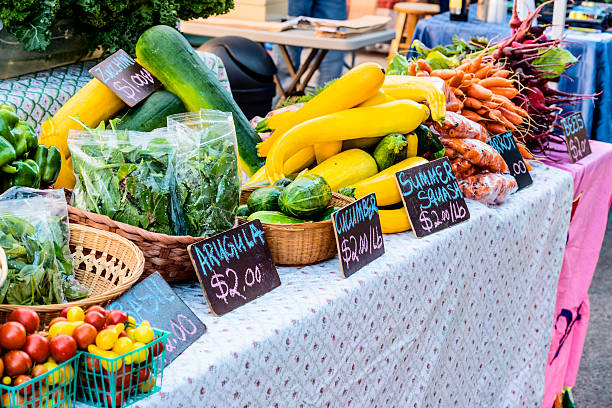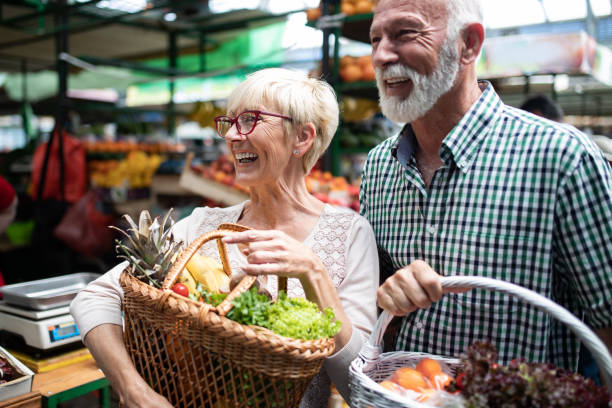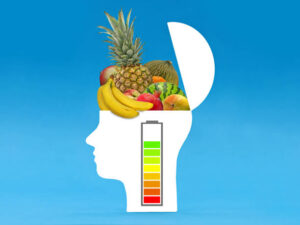Many people wonder how zero waste groceries differ from conventional supermarkets as they appear worldwide. Zero waste stores have several benefits, such as promoting eco-friendly practices, including lowering food trash and reducing plastic waste, which is only 9% recycled, to help the environment.
The waste you generate from grocery shopping accounts for most of your trash. The EPA estimates that about 23% of all trash in landfills is made up of containers and packaging. Imagine the impact you would have on the environment if you embraced these zero waste shopping tips!
What are Zero Waste Stores?

These are stores that strive to eliminate or reduce excess packaging whenever possible. When you visit a zero waste shop, you’ll not find single-use plastics, but what they do goes beyond the storefront. Throughout the supply chain, they work hard to reduce excess packaging as much as possible by working with their producers, distributors, and vendors.
10 Zero Waste Shopping Tips for a Sustainable Lifestyle

Getting started with zero waste isn’t as daunting as you think. Whether you’re on a waste reduction journey or just interested in reducing it, you probably wonder how in the world you can buy food without producing waste. Here are some zero waste shopping tips to help you reduce waste in the grocery store.
1. Write down your shopping list
The advice is common sense for any grocery shopper, but it has new value when applied to zero waste shopping. Make sure you don’t make a mistake by purchasing more than you need when you write out your list of foods and beverages. This will reduce food waste and help you save money.
2. Pack your containers
Zero waste stores emphasize reducing unnecessary waste, so it is best to bring your containers. You may want to make an initial visit to see what the zero waste store offers before you decide on which containers you’ll need.
Many zero waste stores provide reusable storage containers, so you may wish to check out what they offer in advance. The goal is to reduce single-use container usage and save money on groceries, so after your first visit, always bring your containers! Ensure that you weigh and label your containers before filling them with your product to have an accurate checkout price.
3. Invest in more fresh food
The packaging in packaged foods is greatly reduced when you buy mostly vegetables and fruits. A bakery department is usually located in most stores where fresh bread can be purchased and presented in a sackcloth bag or a paper bag. Although it may seem more expensive to buy fresh food when compared with packaged foods, the cost is the same when you eliminate packaged foods from your diet. Additionally, you’ll feel much better physically.
4. Use reusable bags
Avoid paying for disposable plastic bags by bringing your reusable bags. This can help you save money on groceries. Carrying just enough bags will likely keep you from adding more items to your list or picking up more while you are out and about. You may need a couple of produce bags, muslin bags, net tote bags, and perhaps a tote bag with several pockets.
5. Don’t be afraid to explore
Don’t be surprised if you don’t see the same brands at your local zero waste store because they tend to showcase unique, locally sourced products. Support small businesses in your community while embracing the spirit of exploration.
6. Make shopping easier
There is no need to separate fruits and vegetables with individual plastic bags when you buy them. To reduce packaging waste, use a sustainable bag to keep items together if you need to put package-free fruits and vegetables in your cart. This simple, but effective tip can help you reduce plastic waste and in turn, reduce the amount of plastics that end up in our oceans.
[This article further discusses effective solutions for reducing plastic waste in oceans].
7. Make smart shopping choices
Don’t overfill your shopping carts with products you don’t need while browsing the store. However, do some research into the store’s numerous sustainable products because you may discover some new ones.
Also, check out the store’s perimeter. Usually, the perimeters of the supermarkets have fresh fruit, vegetables, eggs, lean meat, fish, and dairy items. Pop, candy, and chips can be found in the middle section.
8. Buy from sustainable stores
It is possible to save money on groceries in the long run by purchasing sustainable, local, eco-friendly, and organic foods. Produce that is grown locally and organically has a high nutritional value.
While farmers’ markets are known for being expensive, your local farmers’ markets may offer better deals than you realize. When it comes to shopping sustainably, finding fresh, whole foods is more important than finding the cheapest bargains.
9. Try a vegan diet
You can be eco-friendly and sustainable by eliminating animal products from your diet. The vegan industry is getting more popular – as you’ve probably noticed. Many people are switching to plant-based diets and liking it. Being a sustainable shopper means considering a diet strictly consisting of plant produce.
Water and land are strained by modern livestock production. The industry contributes great quantities of CO2, nitrous oxide, and methane into the environment while having significant negative impacts on land use, deforestation, water usage, and air pollution.
10. Purchase bulk groceries
You can reduce your environmental impact by buying groceries in bulk. Here are some ways to reduce your impact on the environment when you buy groceries in bulk:
- Suppose you eat 12 pounds of rice per year. It is possible to drive to the grocery shop, pick up one pound of grain, and carry it home once a month.
- You could also buy one 12-pound bag of grain in a single trip. When you take fewer trips, you’ll be reducing your emissions. As a result of making fewer trips, the delivery vehicle emits fewer emissions. Restockers can do their jobs more efficiently.
Read this post to find out why Bulk Buying is Eco-Friendly and Sustainable for the Environment.
Bonus Point: Speak with other zero wasters
The internet will help you connect with others who share your values, even if there is no zero waste grocery shop in your area. If you’re looking for more zero waste shopping tips, you might even find that more experienced “zero wasters” may know about stores in your area otherwise unknown to you.
Top Things You Can Buy at Zero-Waste Grocery Stores

Everything local! Zero-waste shops typically have a selection of groceries that are locally sourced. Local products haven’t traveled as far as those sourced from faraway places, so purchasing them means you are reducing your grocery footprint and supporting local economies.
- Kitchen essentials: The best way to eliminate plastic bottles from your kitchen is to buy essentials in bulk, such as honey, honey, vinegar, olive oil, and condiments. As a bonus, you can choose the quantity that is most appropriate for your family size.
- Dry produce in bulk: It is easier to measure dry goods in bulk, as well as transport them. When you fill glass jars with these items, be sure to use lighter containers or reusable bags instead. There is no doubt that glass is a heavy material. As soon as you are home, you can pour dry produce into another storage container.
- Cleaning essentials: Compared to conventional options, bulk buying dish soap, hand detergent, and laundry detergent can help you save money on groceries. As it is with foodstuff, household products like these are priced according to their weight.
- Reusable products and packaging: In zero waste grocery shops, you can find an array of reusable items for reducing your disposable consumption. They have everything that you might need, from bread bags to silicone bags to cloth bags to beeswax wrap to steel straws.
Worries and Misconceptions about Zero Waste Stores

There may be some reservations about switching over to zero waste shops, which take an eco-friendly and innovative approach to shopping. A few of these apprehensions are addressed by zero waste stores in the following ways:
1. Hygiene
Worry: There is some doubt about the hygienic conditions of bulk products in zero waste stores among shoppers.
Fact: Despite their zero waste credentials, zero waste shops still have to adhere to city or county regulations. As a result, their products must be cleaned and sanitized according to strict standards. As a customer, you are responsible for ensuring that your containers are clean.
2. Bulk shopping is inconvenient
Worry: Bulk shopping may not seem as convenient as traditional shopping to some people.
Fact: Despite some minor adjustments, shopping at zero waste stores quickly evolves into a rewarding experience. Buying online can be convenient because it reduces waste, increases sustainability, and allows individuals to customize purchases. This approach is both convenient and rewarding for many shoppers.
3. Availability of zero waste stores
Worry: There may be concerns about the presence of zero waste shops in certain regions.
Fact: Despite their relative lack of popularity, zero waste stores are steadily growing in popularity. Support local zero waste initiatives to increase accessibility within your community, or keep an eye out for new store openings. You can also check out zero waste stores online or stores that do not use single-use plastics.
4. A limited range of products
Worry: Zero waste stores are perceived to offer a limited range of products.
Fact: There is usually a wide range of items available at zero waste stores, ranging from pantry staples to personal care items. In most stores, you’ll find a wide variety of choices. Some stores specialize in particular categories, so you can find a variety of merchandise. Choosing more sustainable brands will open your eyes to products you wouldn’t normally see at conventional supermarkets or personal hygiene stores!
Bottom Line
Make your shopping more eco-friendly by taking small steps. One grocery trip will not allow you to implement all the zero waste shopping tips above. Therefore, take small steps to get started.
Make sure you bring reusable bags into the store and add them to your car. Stick to a shopping list. Make plant-based alternatives to family meals. You can become an eco-friendly grocery shopper by making small changes over time – and still enjoy your favorite foods.







